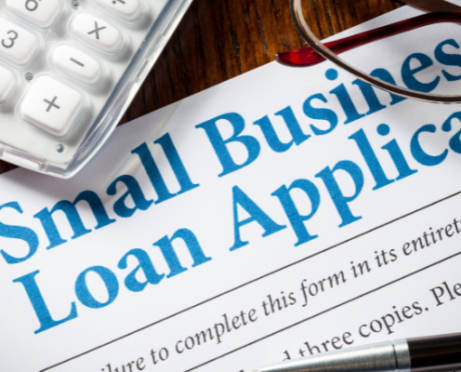
Farm Fresh Fast founder Jonathan Willis. Courtesy: Lance Andrews.
Jonathan Willis was once a personal trainer with a foodie dream: to help busy professionals eat healthy food while bolstering the local farming community.
By taking some risks, he made that dream a reality in Greenville, S.C., with his thriving small business, Farm Fresh Fast, a meal-delivery system and restaurant. The menu has everything from juicy roasted chicken (grown on a nearby farm) to grain bowls that leave you wondering how something so good can be healthy.

If your dream is to start your own business is your dream, talking to other entrepreneurs is key. And Willis agreed to do just that for CentSai. Here, he shares what it took for someone with an idea, but no commercial cooking experience, to launch an on-trend, successful food business that is making a difference for farmers, fellow restauranteurs, and the public.
Need a Business Loan? Get Your Free Quote >>
How to Start a Food Business: From Concept to Reality
Pia Catton: Once you developed the business concept, what was the first step in making it a reality?
Jonathan Willis:The first thing was to budget the build-out, such as electrical, plumbing, HVAC, and general contracting. I worked out a payment plan with all of them and built as I could afford it.
I looked to see what I could do myself, then decided what equipment I needed — not wanted, but needed. My ultimate goal was to not borrow any money and stay debt free. Most restaurateurs borrow massive amounts of money, creating a need to bring a set amount of income daily, even per shift, to pay back their loans.
Catton: What lesson from the early start-up phase would you pass along to new people hoping to start a business?
Willis: Maintain your cash flow, and take care of your employees.
Cash is the lifeblood of your business. It doesn't matter how much collateral you have, you can't barter for your electric bill.
This is true whether you are purchasing equipment, covering payroll, or simply paying a local farmer for their product.
You always have to expect the unexpected, as well. Keep some money back in case something does happen. Before you pay yourself, you must have a surplus put back to ensure that you will be okay if an unexpected situation arises.
It is extremely important that your staff knows that you care. Sometimes that is just an encouragement for a job well done. But it is also monetary. At the hiring phase, I tell people they will get a raise in 90 days, so they have something to work for.
When given this raise, employees are evaluated and improvement goals are established. Once these improvements have been made, another evaluation is held for another raise. It doesn't have to be big. Many small things add up to big returns in business.
Compare Health Insurance Plans for Your Business — Get a Free Quote Here >>
The Role of Social Media
Catton: Are there any tech or digital tools that helped you?
We have so many social media “influencers” that come in to just take pictures of our food or decor. We tell everyone that our restaurant and food are “Instagram ready.” Social media [platforms] such as Facebook, Instagram, Twitter, etc. are essentially free advertisement. This allows entrepreneurs to capitalize on their customers by engaging them, running contests, sharing photos or blogs about the restaurant.
Challenges
Catton: Are there any parts of the business that you wanted to provide to the consumer, but had to wait to do?

Willis: Expanding the menu was a challenge for us. I don't believe that hyper farm-to-table restaurants can have an extensive menu and be good at all of it. There are too many variables. I'd rather be really great at a few things than be really good at making excuses for a lot of failure.
Our first year, we had a lot of problems getting enough product to our restaurant. We decided that in 2018, we would not have that happen again, so we helped the farmers plan their crops.
Before, farmers were just growing products, they told me, because they liked to grow a certain item or just always have [grown it]. That's great, but it doesn't make them money. So we planned with numerous farmers, giving them projections of our needs so they could grow accordingly.
Catton: Is there anything that you set aside and then discovered it was not important?
Willis: The things that you cannot change are not important. Understand that if a problem occurs, it's already happened. You can't take it back. However, the next step must be how to fix the problem, then find a solution to prevent it [from happening again].
So many times I've tried to be everything to everyone, and it was exhausting. As long as you continue progressing and allow yourself to be fluid with necessary change, everything will fall into place. If you worry about every single thing, then soon you will lose yourself and the foundation of why you started in the first place. You will never be able to please everyone.
Get a Free Business Insurance Quote – Visit Site >>
Collaboration
Catton: How have personal B2B relationships made a difference in your business?
Willis: We made it clear from the start that we were working with everyone. We wanted to be a restaurant that’s about community. We realized that we would rather collaborate with other restaurants that might be considered our competition to bring both of our customer bases together. Soon their customers, who possibly hadn't been to our place, were exposed to what we were doing, and vice versa. We realized that if we come together as a community, then we can share each other's strengths and help on our weaknesses, thus creating a tighter-knit community as a whole










